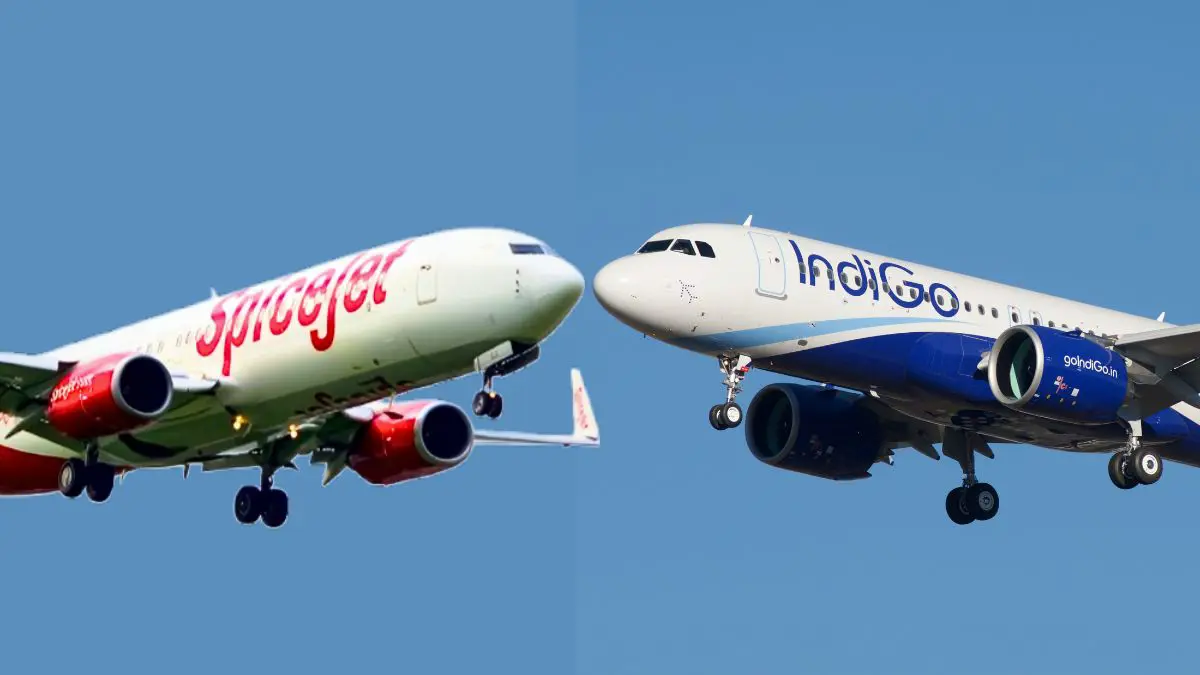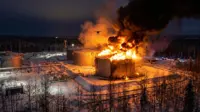IndiGo, SpiceJet shares tumble after Air India crash and oil price spike
By Cygnus | 13 Jun 2025

Shares of major Indian aviation companies nosedived on Friday, June 13, as investor sentiment soured in the wake of a deadly Air India crash and a sharp jump in global crude oil prices.
InterGlobe Aviation, which operates IndiGo, fell nearly 6% to ₹5,175, while SpiceJet dropped 5.5% to ₹42.16 on the BSE. The market reaction comes amid heightened concerns over safety and rising fuel costs, a combination that could hit operating margins hard in the near term.
The crash involved an Air India Boeing 787-8 Dreamliner en route to London, which went down shortly after takeoff from Ahmedabad. All 241 people onboard — 232 passengers and 9 crew — are feared dead, according to early reports. The aircraft reportedly lost altitude seconds after liftoff, crashing into a nearby residential area. While investigations are ongoing, the incident has already sparked caution across the aviation sector.
Oil shock compounds sector pressure
Adding to investor anxiety, crude oil prices surged on fears of supply disruptions following military strikes in the Middle East. Brent crude futures jumped as much as 10% intraday, hitting $78.50 a barrel — the highest since late January — while West Texas Intermediate (WTI) briefly touched $77.62 before settling at $74.47, up over 9% for the day.
The spike in oil prices follows Israeli strikes on Iran’s capital, which officials described as a preemptive action targeting nuclear and missile assets. Iranian media confirmed the death of key military officials, and regional analysts warn of a prolonged escalation. If tensions lead to a closure of the Strait of Hormuz — a vital oil transit chokepoint — markets could face severe disruptions in the coming weeks.
For the aviation industry, already grappling with tight margins, this oil shock couldn’t come at a worse time. Aviation turbine fuel (ATF) constitutes a significant portion of airline operating costs in India, and any sharp increase in input costs directly pressures profitability.
Market experts noted that the twin developments — a fatal crash and geopolitical instability — have rattled short-term investor confidence. “These are deeply concerning signals for the aviation sector. Safety concerns reduce passenger confidence, while fuel inflation limits pricing power,” said a Mumbai-based aviation analyst.
Airline stocks, already under pressure from high competition and regulatory costs, may continue to face turbulence if these risks escalate.
Summary
Indian airline stocks slid sharply following a fatal Air India crash and a surge in crude oil prices triggered by Middle East tensions. IndiGo and SpiceJet were among the biggest losers, reflecting investor fears over safety, rising fuel costs, and broader geopolitical uncertainty. With ATF prices rising and travel sentiment potentially shaken, the aviation sector faces significant short-term headwinds.
Frequently Asked Questions (FAQs)
1. Why did IndiGo and SpiceJet shares fall on June 13, 2025?
The shares of IndiGo and SpiceJet declined sharply due to two major developments: a fatal crash involving an Air India Dreamliner and a sharp spike in global crude oil prices driven by escalating tensions in the Middle East. These events raised investor concerns about airline safety, operational costs, and overall sector profitability.
2. What happened in the Air India crash?
An Air India Boeing 787-8 Dreamliner en route to London crashed shortly after takeoff from Ahmedabad. According to early reports, the aircraft lost altitude moments after liftoff and went down in a residential area. All 241 people onboard — including passengers and crew — are believed to have died. The cause is still under investigation.
3. How do oil prices affect the aviation sector?
Crude oil prices directly impact the cost of aviation turbine fuel (ATF), which makes up a significant portion of an airline’s operating expenses. When oil prices rise, airlines face increased costs that may not be fully passed on to passengers, leading to reduced profit margins.
4. What triggered the recent surge in global oil prices?
Oil prices surged due to geopolitical tensions after Israeli airstrikes targeted Iran’s capital, Tehran. Concerns about potential retaliatory action and the possibility of disruptions in oil supply — especially through the Strait of Hormuz — pushed Brent and WTI crude prices to their highest levels since January.
5. Could this crash affect Air India’s operations or reputation?
Yes. A fatal crash of this magnitude typically prompts detailed regulatory investigations, affects public perception, and may lead to short-term declines in bookings. It could also invite scrutiny of Air India's safety protocols and maintenance standards.
6. What are the broader implications for Indian aviation?
The incident underscores the fragility of investor sentiment in the aviation sector, which is already burdened by high fuel costs and tight competition. Prolonged geopolitical instability and safety concerns could dampen air travel demand, affect share prices, and increase regulatory oversight.
7. Has the government or DGCA responded to the crash?
As of now, official investigations are underway, and the Directorate General of Civil Aviation (DGCA) is expected to provide updates. Emergency protocols have been activated, and a detailed report on the cause of the crash is awaited.
8. What should investors watch in the coming days?
Investors should monitor crude oil price trends, regulatory updates from the Air India investigation, and broader market sentiment toward the aviation and travel sectors. Any further escalation in Middle East tensions could amplify market volatility.




















